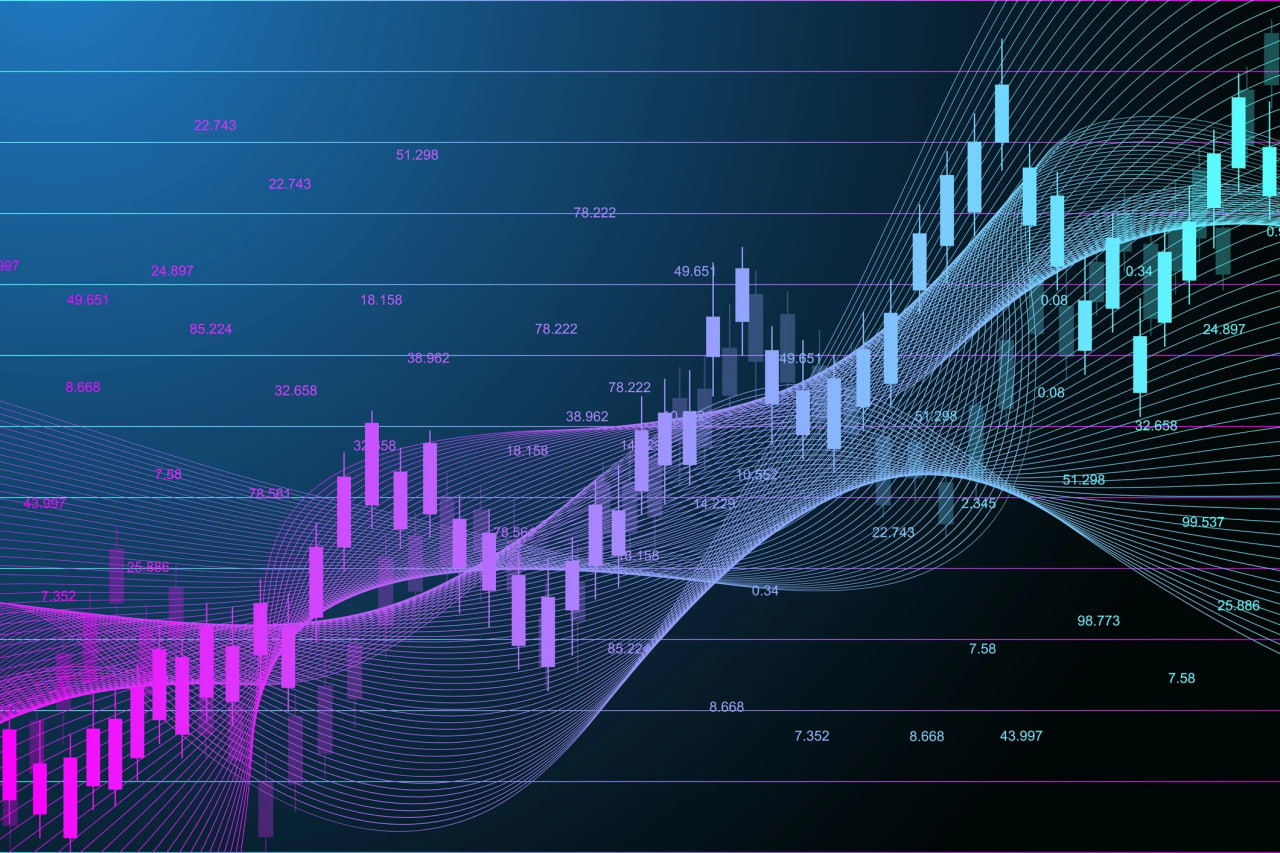US Election's Global Ripple Effect: How American Politics Shakes the World
Meta Description: Deep dive into the global impact of US elections, analyzing the IMF's perspective, historical precedents, and potential economic consequences for various nations. Explore the interconnectedness of the global economy and the influence of US political decisions. #USElection #GlobalEconomy #IMF #Geopolitics #InternationalFinance
The upcoming US election isn't just a domestic affair; it's a global blockbuster, a geopolitical earthquake with seismic repercussions felt across continents. Think of it like this: the US economy is the 800-pound gorilla in the room, and its political climate dictates the mood of the entire global marketplace. IMF First Deputy Managing Director Gita Gopinath recently underscored this reality, stating unequivocally that the outcome will significantly impact nations worldwide. This isn't just some abstract academic theory; it's a hard-hitting truth with real-world consequences affecting everything from your morning coffee price to international trade agreements. We're not talking about minor tremors here – we're talking about potential tectonic shifts in the global financial landscape. This article will dissect the intricate ways in which a US election can reshape the world, providing insights based on historical trends, economic indicators, and expert opinions, offering a comprehensive understanding of the interwoven nature of American politics and global stability. Get ready to unravel this complex web of international finance and geopolitics – because understanding the impact of the US election is no longer optional, it's essential. We’ll explore how different potential outcomes could affect various sectors, from emerging markets to developed economies, and discuss the strategies countries might employ to mitigate potential risks. So buckle up, because this is going to be one wild ride!
The IMF's Perspective: A Global Watchdog's Concerns
The International Monetary Fund (IMF), a global organization tasked with overseeing international financial stability, rightly points out the significant global implications of the US election. Gopinath's statement highlighting the interconnectedness of the US and the world economy isn't hyperbole; it's a clear-eyed assessment of a deeply intertwined system. The US, as the world's largest economy, acts as a kind of economic weather vane. Its policies and political climate directly influence global markets, investor confidence, and currency exchange rates. Think of it as a domino effect: when the US economy sneezes, the rest of the world catches a cold. This isn't just a matter of speculation; it's supported by decades of economic data and historical precedent.
The IMF's perspective is crucial because it's based on years of analyzing global economic trends and predicting potential pitfalls. Their insights aren’t driven by partisan politics; they're rooted in rigorous data analysis and a deep understanding of international finance. They're essentially the global financial system's doctor, constantly monitoring its vitals and advising on preventative measures.
Historical Precedents: Learning from the Past
Looking back at past US elections offers valuable insights into their global impact. The 2008 financial crisis, triggered by the subprime mortgage crisis in the US, serves as a stark reminder of how quickly domestic issues can snowball into a global catastrophe. The ripple effect was devastating, causing a worldwide recession and impacting countless lives. Similarly, shifts in US trade policy, such as the imposition of tariffs, have had immediate and significant consequences for other countries, particularly those heavily reliant on US trade. These events aren't isolated incidents; they demonstrate the inherent interconnectedness of the global economy and the powerful influence of US policy. Studying these historical parallels helps us better understand the potential ramifications of the upcoming election.
It’s important to remember that every election brings its own unique set of challenges and opportunities. The specific policies advocated by different candidates, their approaches to international relations, and their economic philosophies all play crucial roles in shaping the global landscape. Analyzing these specific details in the context of past events provides a more nuanced understanding of the potential future scenarios.
Potential Economic Consequences: A Multi-faceted Analysis
The economic consequences of the US election are multifaceted, impacting various sectors and countries differently. For example, changes in fiscal policy, such as tax cuts or increased government spending, can significantly affect global demand and inflation rates. Similarly, shifts in monetary policy, such as interest rate hikes or quantitative easing, can have far-reaching implications for currency exchange rates and international capital flows. The impact varies depending on the specific policies implemented and the global economic climate at the time.
One key area to watch is trade policy. A shift towards protectionism could disrupt established supply chains, impact international trade agreements, and potentially lead to retaliatory measures from other countries. This could have particularly severe consequences for emerging markets heavily reliant on exports to the US. Conversely, a more open and collaborative approach could foster economic growth and stability.
Furthermore, the geopolitical implications are significant. A change in US foreign policy could dramatically alter international relations, impacting alliances, trade agreements, and global security. This could lead to instability in certain regions, impacting investment flows and economic development.
Emerging Markets and Developed Economies: A Tale of Two Worlds
Emerging markets often have a more direct and immediate exposure to changes in the US economy and policy. They are frequently major trading partners with the US and are susceptible to shifts in investor sentiment and capital flows. A negative shock in the US could easily trigger a crisis in these more vulnerable economies. Developed economies, while less directly susceptible, are still significantly affected by fluctuations in the US economy due to the interconnected nature of global financial markets. They too must adapt to shifts in global supply chains and demand.
| Economic Factor | Impact on Emerging Markets | Impact on Developed Economies |
|--------------------------|-----------------------------|-----------------------------|
| US Interest Rate Hikes | Increased capital outflow, currency depreciation | Potential slowdown in investment, inflation |
| US Trade Protectionism | Reduced export demand, economic slowdown | Increased domestic production costs, supply chain disruptions |
| US Fiscal Stimulus | Potential increased demand for exports | Potential increased inflation, higher interest rates |
Navigating Uncertainty: Strategies for Mitigation
Given the inherent uncertainty associated with the US election, countries need to develop strategies to mitigate potential risks. This includes diversifying trade relationships, strengthening domestic economies, and fostering financial resilience. Such measures are not merely reactive; they represent a proactive approach to hedging against potential vulnerabilities. It's about building a sturdy economic foundation that can withstand external shocks.
Furthermore, international cooperation is crucial. Open communication and coordinated policy responses can help manage the global implications of the US election, ensuring a more stable and predictable international economic order.
Frequently Asked Questions (FAQ)
Q1: How does the US election impact my personal finances?
A1: The impact can be indirect but significant. Changes in US economic policy can affect inflation, interest rates, and job markets globally, influencing your spending power, investment returns, and job security.
Q2: What is the role of the IMF in managing the global impact of the US election?
A2: The IMF monitors global financial stability and provides advice and support to member countries to navigate economic challenges, including the ripple effects of US political decisions.
Q3: Are emerging markets more vulnerable to US election outcomes than developed economies?
A3: Yes, emerging markets are generally more susceptible due to higher reliance on US trade, investment, and a greater vulnerability to capital flight.
Q4: Can individual countries do anything to mitigate the potential negative impacts?
A4: Yes, diversifying trade partners, strengthening domestic economies, and building financial resilience are key strategies.
Q5: How important is international cooperation in dealing with the consequences?
A5: International cooperation is vital to manage the global implications and ensure a more stable international economic order. Coordinated policy responses can help mitigate negative shocks.
Q6: What historical precedents can help us understand the potential impact?
A6: The 2008 financial crisis and instances of US trade policy shifts are valuable case studies illustrating how domestic events can create global ripple effects.
Conclusion: A World Connected
The upcoming US election is not merely an American affair; it's a global event with far-reaching consequences. Understanding the intricacies of this interconnectedness is paramount for policymakers, businesses, and individuals alike. By acknowledging the historical precedents, analyzing potential economic consequences, and implementing proactive mitigation strategies, we can navigate the uncertainties and potential challenges more effectively. The world is watching, and the impact will be felt far beyond American borders. The future, at least in part, lies in the hands of the American voter, but understanding that future is a global responsibility.



